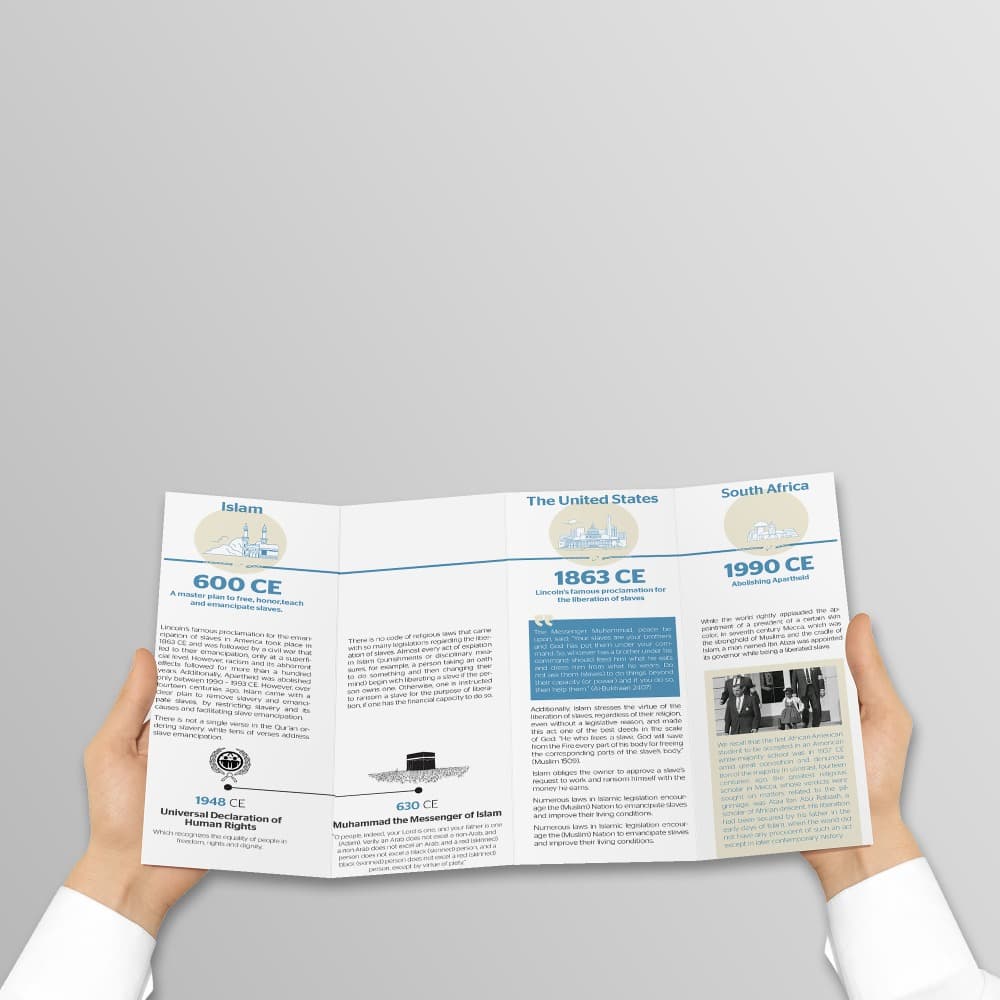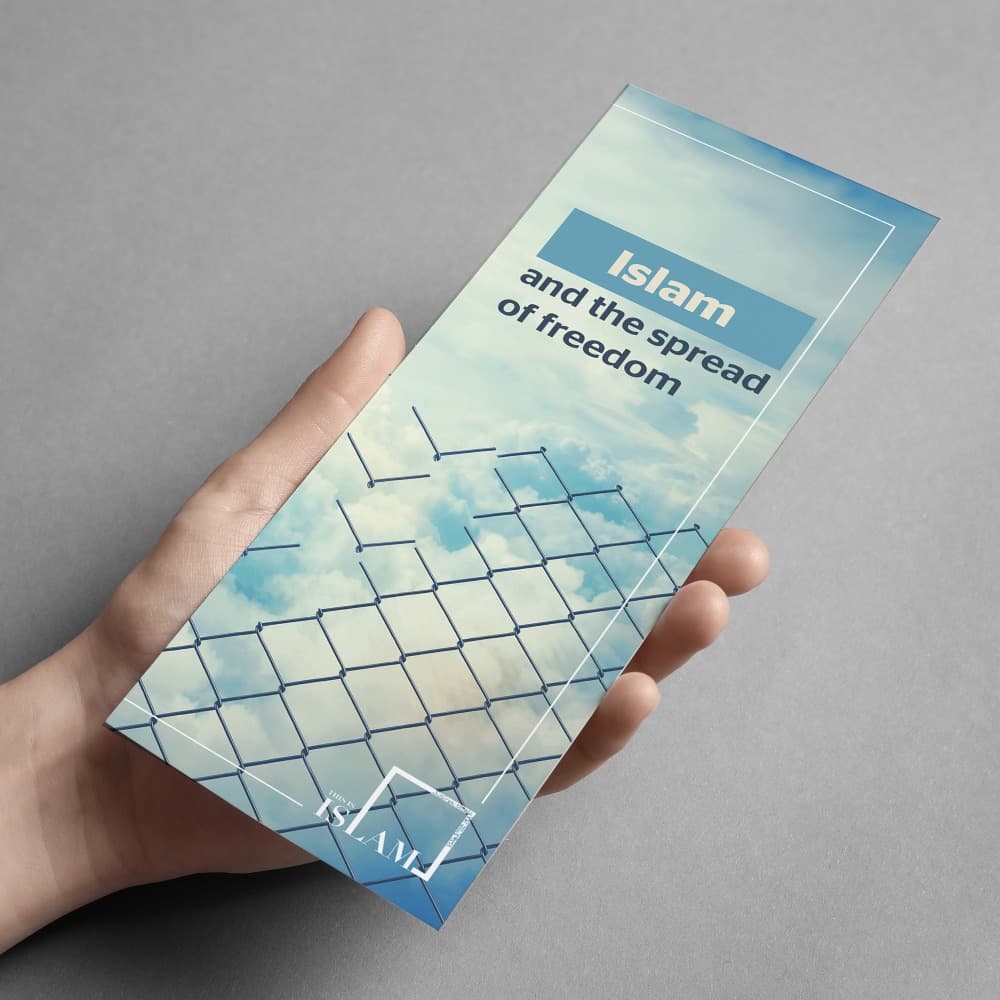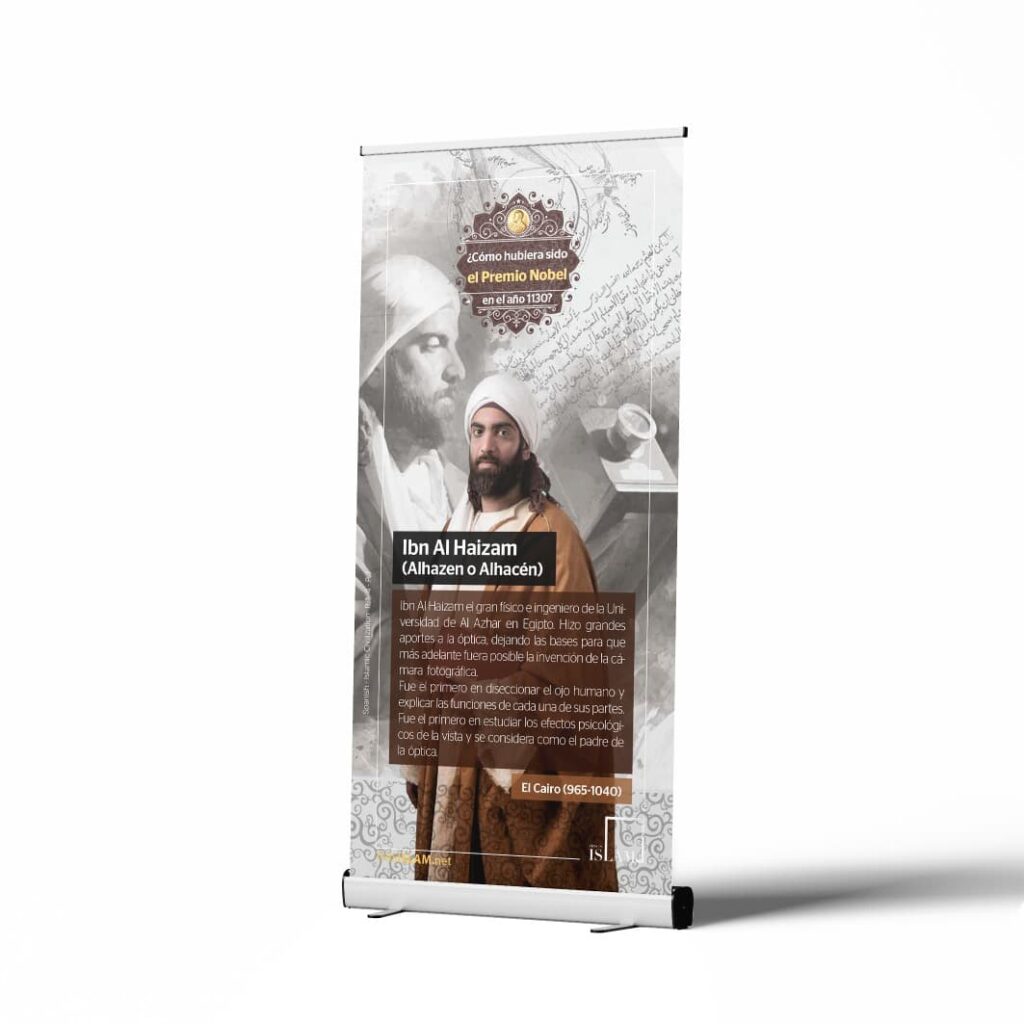Islam and the spread of freedom
Before the advent of Islam, a slave was despised and considered despicable. Slaves had no value and no rights and had absolutely no dignity. There was nothing wrong with keeping them shackled so that they could not escape. Putting a slave to death or killing him if it was something entertaining and enjoyable was considered a sport, like the infamous Colosseum, where slaves would wrestle to death to satisfy the arrogance and pleasure of their masters.
Islam was born over 1400 years ago as a guide to the world. It changed all these concepts and turned them upside down, beginning with treating slaves in the loftiest way to instituting various legislations which called for the liberation of slaves. An example of such legislations is that Islam considers the physical insult of a slave a crime and obliges the (transgressing) person to liberate the slave. The prophet Muhammad, may God exalt his mention, said: “Whoever slaps his slave’s face or hits him must liberate him as an expiation (for what he did)” (Muslim 1657).
Lincoln’s famous proclamation for the emancipation of slaves in America took place in 1863 CE and was followed by a civil war that led to their emancipation, only at a superficial level. However, racism and its abhorrent effects followed for more than a hundred years. Additionally, Apartheid was abolished only between 1990 – 1993 CE. However, over fourteen centuries ago, Islam came with a clear plan to remove slavery and emancipate slaves, by restricting slavery and its causes and facilitating slave emancipation.
There is not a single verse in the Qur’an ordering slavery, while tens of verses addressed slave emancipation.
There is no code of religious laws that came with so many legislations regarding the liberation of slaves. Almost every act of expiation in Islam (punishments or disciplinary measures, for example, a person taking an oath to do something and then changing their mind) begin with liberating a slave if the person owns one. Otherwise, one is instructed to ransom a slave for the purpose of liberation, if one has the financial capacity to do so.
Additionally, Islam stresses the virtue of the liberation of slaves, regardless of their religion, even without a legislative reason, and made this act one of the best deeds in the scale of God: “He who frees a slave, God will save from the Fire every part of his body for freeing the corresponding parts of the slave’s body.” (Muslim 1509).
Islam obliges the owner to approve a slave’s request to work and ransom himself with the money he earns.
Numerous laws in Islamic legislation encourage the (Muslim) Nation to emancipate slaves and improve their living conditions.
The Mu’aththin of the Messenger of God (the person who calls for the five daily prayers, which is one of the most important religious functions) was a former slave.
While the world rightly applauded the appointment of a president of a certain skin color, in seventh century Mecca, which was the stronghold of Muslims and the cradle of Islam, a man named Ibn Abza was appointed its governor while being a liberated slave.
We recall that the first black student to be accepted in American white-majority schools was in 1957 CE amid great opposition and denunciation of the majority. In contrast, fourteen centuries ago, the greatest religious scholar in Mecca, whose verdicts were sought on matters related to the pilgrimage, was Ataa Ibn Abu Rabaah, a scholar of African descent. His liberation had been secured by his father in the early days of Islam, when the world did not have any precedent of such an act except in later contemporary history.
The Messenger Muhammad, may God exalt his mention, said: “Your slaves are your brothers and God has put them under your command. So, whoever has a brother under his command should feed him what he eats and dress him from what he wears. Do not ask them (slaves) to do things beyond their capacity (or power) and if you do so, then help them.” (Al-Bukhaari 2407)
Islam 600 CE
A master plan to free, honor and teach slaves and emancipate them.
The United States 1863 CE
Lincoln’s famous proclamation for the liberation of slaves
South Africa 1990 CE
Abolishing Apartheid

Double sided A4 color copy paper.
Paper Size: 80-100g














Reviews
There are no reviews yet.